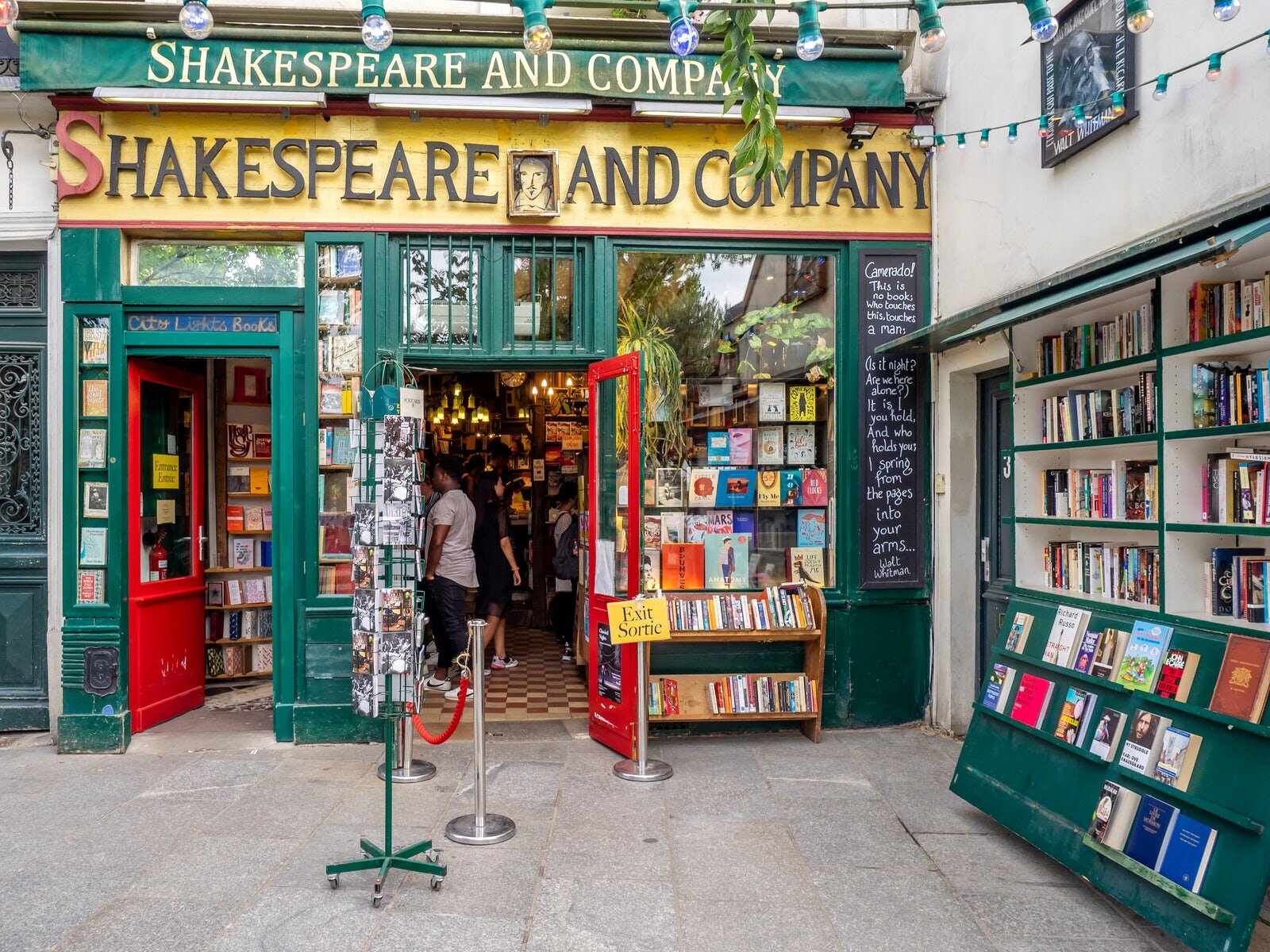Writer in Residence Sean Russell writes about his time in Paris based at the literary hub of Shakespeare & Company, a shop that now needs help to survive during this pandemic.
When I arrived in Paris it was cold and it was January and it was grey and the wind blew. Yet somehow the city always has a beauty that others just do not have, whatever the weather may be. It was 2015 and I was 22 and idolised Hemingway amongst many others and saw no other place to be other than Paris, I saw no other place than Shakespeare & Company.
I didn’t have a lot of money but had discovered that if you thought of yourself as a writer you could live in the shop so long as you worked there for two hours a day and helped open and close it. You also had to write a one-page autobiography at the end of your time there and traditionally you were supposed to read a book a day – although I can’t say I managed quite that rate... These were George Whitman’s rules for letting people stay in his shop on the Seine looking directly at Notre Dame, rules which still exist to this day under his daughter, owner Sylvia Whitman.
I could think of no better place to be, Shakespeare and Company is more than a bookshop, it is a history and tradition. Many writers have passed through its doors – including the likes of Allen Ginsberg and Gregory Corso – and many famous people have come and gone. I remember meeting Owen Wilson in the library there, sitting down to enjoy a book one quiet windy evening.
The shop was so busy in the day, hundreds of people crammed into the place in a way that is unimaginable now during the pandemic. One of the jobs I would do during my two hours was stand on the door letting people in and out as queues built up to see this wonderful little nook in Paris. The customers would ask for book recommendations of us and we would happily give them and on some evenings, authors would read from their works to a wine-drinking audience.
But for the tumbleweeds – the name given to the writers who sleep in the shop – it was when the customers left that there was a different kind of magic. When night came, and the final readers and shoppers were gone, we would close the doors and be surrounded by quiet and books. So much more the quiet after such a busy day.
We would stay up drinking wine and reading books and chatting and writing, I made some of the very best friends I ever made in the shop and felt like I was part of this great tradition. Up on the third floor of the building there was an archive of one-page biographies, thousands of them dating back decades. We used to go through them and read them and find that we were just part of this long line of people looking for a Parisian dream. My autobiography, if I recall correctly, was horrifically pretentious.
The shop acted as a hub, it was where people were drawn not just from all over the city but all over the world. All small independent bookshops are important to the communities that love them, Shakespeare & Company’s community just happened to be from everywhere.
Some of the most cherished books I own are the ones I got from Shakespeare & Company with the little stamp inside the front cover reminding me of some little memory of the few months I spent in Paris sleeping next to the piano upstairs, but also after I left the shop and returned to meet friends and buy books.
Like many independent shops around the world, Shakespeare & Company is struggling in the pandemic and for all of us that love the shop it’s time to help if we can as they push for support. Any book from Shakespeare & Company is to be cherished by all book lovers, you buy into the heritage of the shop, you buy into the idea.
Now, if you can, please help support this wonderful shop. But if not Shakespeare & Company then any of the other independents needing help to survive right now.
Support Shakespeare & Company here.

